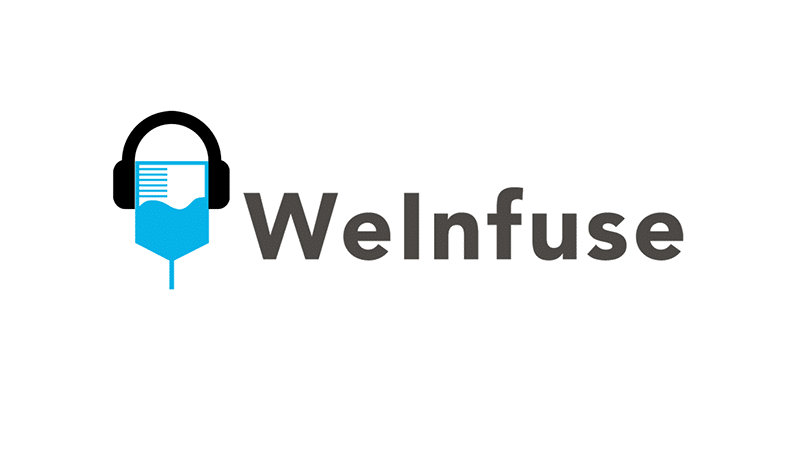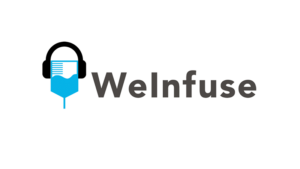In this episode, Sonia Alizzi, Corporate Director of Nursing at Southside Specialty Pharmacy, draws on her vast experience (both clinical and business related) and shares important tips for effective infusion center management.
Follow on Amazon Music II Subscribe on iTunes II Subscribe on Podbean
Transcript: Important tips for effective infusion center management with Sonia Alizzi
Dylan McCabe: WeInfuse podcast, episode number 15. Welcome to WeInfuse podcast and today we have a special guest Sonia Alizzi with SouthSide. She’s the director of nursing with SouthSide Infusion Pharmacy and she’s actually been an RN. She wears different hats in SouthSide, she’s involved with their management of infusion practice and she’s involved in operations, she’s involved in growing the business. So she has a really neat take on infusion therapy specifically. So Sonia, thanks for being on the show.
Sonia Alizzi: Thank you, thank you for having me.
Dylan McCabe: Before we launch into my typical questions I like to ask, I want to give Sonya a chance to just share a little bit about her background. So just, I guess, tell our listeners kind of what led you up to this point and your background in a clinical setting and what got you involved with SouthSide?
Sonia Alizzi: Sure. In 1994, I started with infusions or my introduction to infusions with infectious disease. I was the clinic practice manager for that doctor’s office doing PICC lines at the bedside and then we were mixing our own antibiotics and sending patients home with them. So I got a little taste of that and fell in love with it.
Dylan McCabe: That’s great. So you went from being an RN to working with infusion patients and then how long have you been with SouthSide?
Sonia Alizzi: I’ve been with them for 14 years now. So from being a practice manager, I went on to work for Helix. I was a clinical educator there. I was a corporate nurse teaching nurses how to put in PICC lines at the bedside, got very redundant, missed the patient side of it and dealing with the physicians and so I went on to work with SouthSide where I started home health services. I was their director of nursing for home health, loved that there was an aspect of infusion there because we were doing home infusions, did a lot of that and then went on and started branching out our own infusion services for the company and doing infusion management services.
Dylan McCabe: That’s great. So let’s just take a minute for people that don’t know, or maybe haven’t heard about SouthSide, kind of give us an overview of what SouthSide does because I know predominantly some people may think of SouthSide specialty pharmacy, but there’s much more to it than that.
Sonia Alizzi: Absolutely. So originally we started off with retail pharmacy, grew our services into the specialty side and now we’re really big into the infusion side where we have our own standalone infusion locations where patients can come in and be serviced seven days a week, as well as doing the infusion management side where we’ll go into physician offices and do the whole scope of services turnkey for managing the practice.
Dylan McCabe: And then you guys are also involved in, I think you said home health, are you also involved in home infusion?
Sonia Alizzi: Home infusion, home health, we own our own home health company. We own our own home medical equipment company and I think that’s it.
Dylan McCabe: Yep and the in office infusion suite, so you guys are involved in a lot.
Sonia Alizzi: Yeah.
Dylan McCabe: That’s awesome; and so with all of that going on, it might be kind of hard to pinpoint, but when you say that you guys have a main area of expertise or a main focus?
Sonia Alizzi: I’d say that it’s probably in the specialty realm and then our in growing infusion services, it’s rapidly growing, every year we grow at least 20, 25%.
Dylan McCabe: Wow and I know we were talking earlier during the conference as those of you that are listening, we’re actually recording this during a break from a large Texas rheumatology conference but I think you mentioned that one of your goals at SouthSide is to be kind of a one stop shop.
Sonia Alizzi: Absolutely. That was our model initially to be the one stop shop. So we were seeking where we could have a niche in the service market and basically it was to get one referral and be able to service it from beginning to end. So definitely if we’d gotten a referral from a case manager in the hospital, a patient needs to go home, we’re able to get them a wheelchair, get them their infusion services and get them their nurse all out of the same hub.
Dylan McCabe: Okay. So for people listening to this and we have a pretty broad range of listeners from physicians to nurses, to business people who are thinking about launching infusion practices or acquiring them, what’s one big takeaway you would want our listeners to learn from that? What’s the benefit to having a one stop shop as opposed to somebody maybe thinking, well, I think it may be better to go here for this thing and go to another company for that?
Sonia Alizzi: Well, having a one stop shop, I think it helps you keep your client in house so that you’re not losing them to maybe a company who can do or offer more services than yourself. Obviously some of the pros are that the revenue can be good but there are some risks associated with that. So just basically do your homework.
Dylan McCabe: That’s good. Yeah. You have a lot more control over that experience, patient experience, client experience. That’s good. That’s great. Well, let’s switch gears and talk specifically about infusion therapy with the in-office infusion practice. What’s one maybe consistent or big challenge that you guys have encountered with in-office infusion therapy?
Sonia Alizzi: I think one of the biggest challenges is trying to present a proforma or a forecast on how that office is going to turn out for the company so that it’s a win win for both parties. A lot of physician’s offices don’t have a full grasp of how many patients they have. They don’t have a full grasp of what insurances reimburse. I think that becomes the biggest challenge for us trying to forecast and really that’s it.
Dylan McCabe: And so why do you think that’s so challenging? Does it come down to their ability to have a good sales process? What do you think is the key to growing that successfully?
Sonia Alizzi: So I think that the problem is that they’re not capturing the data. If they’re sending things out, then they’re not really capturing what their revenue source could be. They’ve never maybe done any infusion management services, so they’ve never bought any medication. They don’t know what the reimbursement is from blue cross versus United. They don’t really have an idea of how to even start that up. So I think that that’s really part of the problem. That’s why it’s hard to get a good forecast from them.
Dylan McCabe: That’s a good point and we see that a lot too when we offer our software, we go into a practice and try to analyze their workflow and I’m not involved in forecasting or anything like that, but we go in there and analyze their workflow and we’ll find a situation where somebody is keeping track of inventory in a notebook on paper and they’re updating it once a week. I was in an office two weeks ago in the Northeast and they had over: I said, how much inventory do you have on hand now, if you could put a dollar value to it, she said, oh, somewhere around 330,000 and I said, and how are you updating it? She said, well, here’s my notebook is my system works great and I said, well, what are you recording? She said, well right here, look, I’ve got Remicade, I count, I’ve got 10 vials, I put Remicade 10 and I said, well, what about the size of the vial? The NDC, the lot, the expiration date? I don’t need to keep track of that. We order more Remicade every week or so and I’m thinking if you were to transfer two, five, $10,000 out of your personal bank account at a time, I think you’d pay very close attention to it. You’d probably have to be doing it online or at least have a record of it. You wouldn’t be doing it in a ledger on a notebook.
Sonia Alizzi: Absolutely.
Dylan McCabe: I mean, it’s just crazy and meanwhile, this fridge it’s in the corner of this infusion suite, it’s got over 300 grand going in and out of it every week. So that’s one thing we’ve seen as well is that you go into a physician practice and everybody’s so clinically focused that they don’t focus enough on the business details and we like to say, you need to have equal parts, clinical passion and business acumen. Otherwise it’s just not going to work.
Sonia Alizzi: That’s right. That’s right.
Dylan McCabe: So it’s interesting to hear…
Sonia Alizzi: Well people pay attention when they’re losing money, that’s when they start paying attention. So that’s the part where we want to come in and help them with that and if we can get them to really highlight some of their pain points, then we want to be a solution for them and granted, we need the background information. We need the forecasting in order to help them.
Dylan McCabe: That’s great and I’m sure you’ve got stories of practices you guys have come into and help them get turned around and get back on their feet financially.
Sonia Alizzi: Absolutely. I think initially part of our hiccups have been with new practices and trying to convince offices that they will be profitable in the long run. The start-up takes some time, once you get ramped up it will work out for the company.
Dylan McCabe: Yeah. And I think with that, I know with some physician practices, just to be straight here, some of them don’t want to use a management company because they think, well, this management company is going to take revenue.
Sonia Alizzi: That’s right.
Dylan McCabe: I had a conversation with the doctor’s office last week and they’re really struggling with some billing issues and they called us, they call We Infuse because we have a software platform to help you manage your practice. I said, frankly, you need a management company, you really do, because they’re going to do billing services, they’re going to take away the risk of buying the drugs. They’re even going to help with staff, processes, people, all this stuff that no software platform on earth can do and that’s what you need and this particular physician still didn’t want that. But I tried to also let them know that when you work with a company like you guys, a lot of times you will also build other revenue streams at the offices and this particular office wasn’t doing any home infusion at all. So I tried to tell them, if you work with a management company, whether it’s SouthSide or Helix, they’re all going to try to add revenue streams.
Sonia Alizzi: A hundred percent, it’s a partnership.
Dylan McCabe: And so that’s something that a lot of physicians either don’t know to do or are scared to do. Maybe they’ve heard a story where it didn’t work out well or whatever, but it’s always good. I mean a percentage of something is way better than nothing.
Sonia Alizzi: Well, you’re going to lose it in the long run if you’re not managing it correctly yourself, or I get the calls where the doctors wanted me to send a nurse because their nurse didn’t show up and they’ve got 15 patients scheduled that day. You already lost money that day. Your patients are only going to put up with that for so long. So with management services, you can have another backup nurse they’re readily available, or your nurse can actually take vacation and it doesn’t impact your revenue because we’ll supply another nurse for you.
Dylan McCabe: That’s a great point. It’s just a level of safety there. That’s great. Well, tell me this with everything that you’ve been through and I love learning about the infusion therapy space, but I’m relatively new at it and always learning and I know that with your experience clinically and with SouthSide, I’m sure you’ve seen a lot. What’s a big aha moment or a light bulb moment where you’ve seen there’s something really important that people need to focus on in in-office infusion?
Sonia Alizzi: I think really for us, the light bulb moment is that there is money to be made and you are helping patients that would prefer to be seen in-house. They would prefer not to go to an oncology center to receive their treatment for Crohn’s or rheumatoid arthritis. They prefer to be seen at the doctor’s office. So I think this, the fact that you can bring that service to them in the doctor’s office has been a very much an aha moment for us.
Dylan McCabe: Why is it do you think for people that aren’t familiar with this space, why would the patient prefer to do it versus at a hospital or in the home?
Sonia Alizzi: I think when you’re going out to another location, there’s no personal service to you, just random nursing, a bunch of patients, you’re a number, you’re not an actual patient. You’re treated differently than the other patients, there may be a priority for the cancer patients over your treatment. I just think there are some things to be said for doing it in a doctor’s office versus going out.
Dylan McCabe: That’s a good point. I heard Brian Johnson mention the other day that when you have a patient for infusion therapy, especially if they’re coming to the office, once every month or two, they really kind of become like family. Because if they’re going to sit in that chair for an hour, two hours, four hours, you get to know them pretty well.
Sonia Alizzi: Absolutely. It’s no different than a woman going to the nail salon and knowing her tech, they trust you. They trust you enough to start an IV, they trust you enough to actually give them their treatment and to respond and know how to respond if they have a reaction. So it’s very much a connection that you make with your patient.
Dylan McCabe: That’s a good point. Obviously it’s a clinical setting and they need to be there, but just from a customer service standpoint, there’s no way a hospital or some kind of outpatient infusion center where they don’t have that personal relationship. There’s no way anybody would stay there. If they could go somewhere where they have relationships.
Sonia Alizzi: Absolutely, we see it all the time.
Dylan McCabe: I’m sure. Well, tell me this with, I know you guys are growing, you mentioned some numbers earlier, you guys are growing pretty quick. So what are you most excited about with SouthSide right now?
Sonia Alizzi: I think I’m most excited to expand outside of Texas. So, we’re definitely expanding outside of Texas and for us, that’s a big goal that we had wanted to do and we’re actually achieving that goal this year. So for us that’s really it.
Dylan McCabe: That’s great. Do you guys have any targets to focus on first?
Sonia Alizzi: Minnesota will probably be our first one.
Dylan McCabe: Okay, great, catch up on some cold weather?
Sonia Alizzi: Oh yeah. I’ve been down there a couple of times and it’s extremely cold.
Dylan McCabe: Yeah. It’s beautiful up there too.
Sonia Alizzi: Oh, it’s amazing and great food, I have to tell you, it is amazing.
Dylan McCabe: Oh, okay. Yeah, that’s great.
Sonia Alizzi: You’ll be down there, I’m sure when we get our stuff down there with you all.
Dylan McCabe: Oh yeah, absolutely. Be a good reason to get some good fishing in. Well I guess with everything, I mean, there’s so much we could talk about, but we’re going to wrap it up. So what’s one parting piece of advice for our listeners?
Sonia Alizzi: It’s that homework, you really got to know your business. You’ve got to know your insurances. You’ve got to know which ones, what plans you’re enrolled in and you’ve got to know what the reimbursements could look like. You need to know what your medication mix is like and like you said, you can’t have it on a piece of paper. You’ve got to keep tight metrics and what your business looks like before you get involved in anything.
Dylan McCabe: That’s great advice. Well, I’m really glad that you took us up on the offer, we reached out to you asking you to join the program. So thanks for making time for it and I know that the listeners got a lot out of it because you guys have a lot to offer and with your experience, it just brings a lot to the table. So thanks a lot.
Sonia Alizzi: Thank you. Appreciate it.
Dylan McCabe: And for those of you that are listening and have not done so, be sure to check out more podcast episodes on weinfuse.com and if you haven’t seen a demo of the software and would like to see one, be sure to request a demo today, just head over to weinfuse.com to get more valuable content on the infusion practice.
Guest Speaker:
Owner of Curbside Infusion Services, Sonia Alizzi, has over 20 years of experience in infusion administration. Prior to opening Curbside, Sonia worked as Director of Nursing, Director of Clinical Business Development, and Senior VP of Infusion at Southside Specialty Pharmacy.




